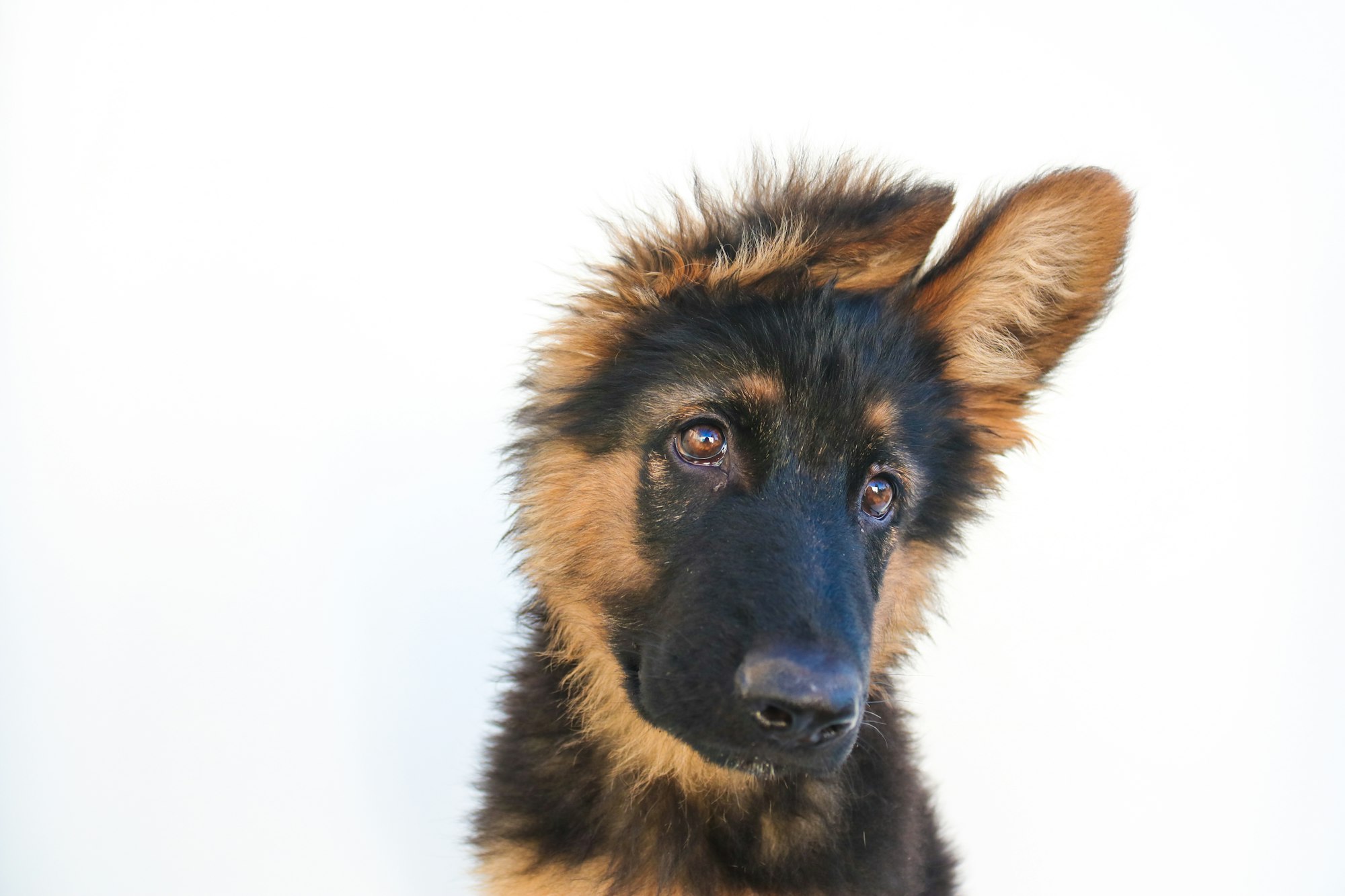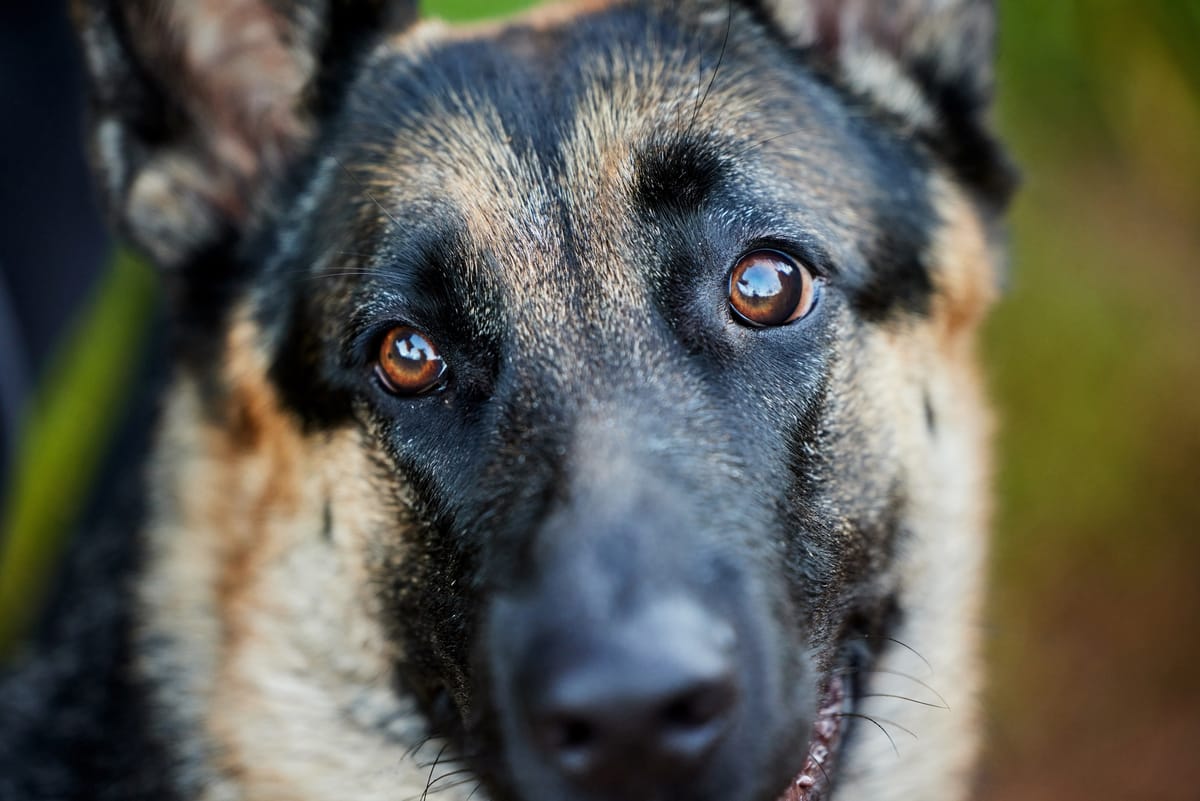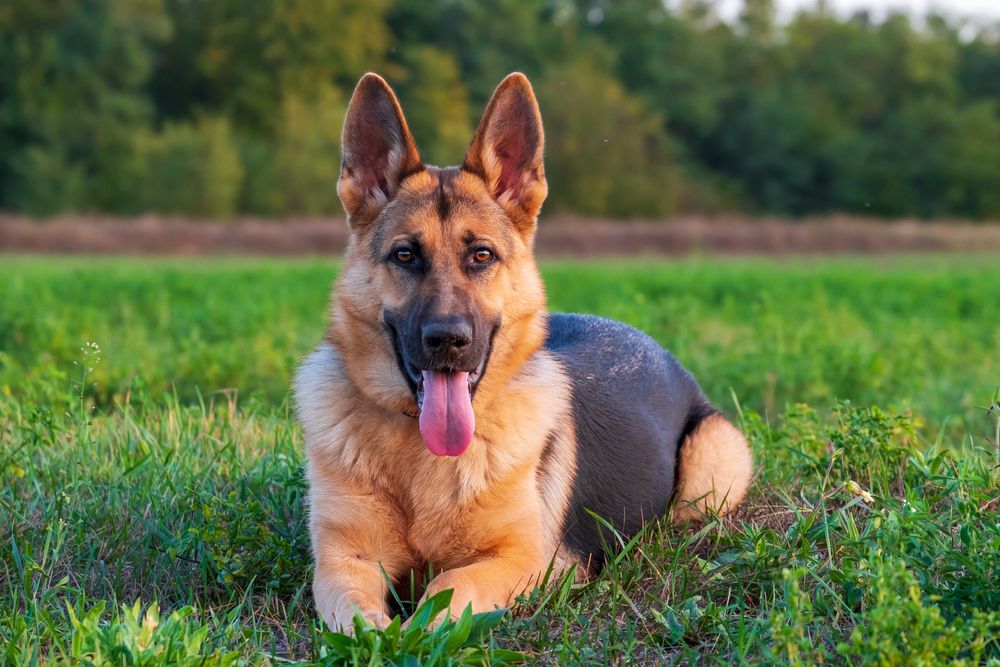Navigating the world of puppyhood can be both an exhilarating and daunting experience. Among the myriad decisions that new pet owners must make, determining the right quantity and type of food for your furry companion stands paramount. Especially for breeds like the German Shepherd, which grow rapidly and have specific nutritional needs, ensuring the right diet from the start is crucial for their overall health and development.
In this guide, we will delve deep into understanding just how much to feed a German Shepherd puppy, taking into account their age, weight, activity level, and unique dietary requirements. Whether you're a first-time dog parent or a seasoned German Shepherd enthusiast, this comprehensive guide aims to shed light on your puppy's nutritional journey.

German Shepherd Puppy Nutrition: The Basics
The first step in understanding the feeding requirements is to grasp the basics of German Shepherd puppy nutrition. These puppies are an energetic lot. They grow rapidly and thus have specific dietary needs.
For instance, did you know that a basset hound beagle mix might have completely different nutritional requirements than a German Shepherd? It's not just about the breed but also about understanding their activity levels, growth spurts, and potential health concerns.
Why Exact Portions Matter
Overfeeding can lead to obesity, while underfeeding might stunt growth. Neither situation is ideal. A friend of mine once had a German Shepherd puppy named Max. She treated Max like her child and always felt he should eat heartily. But feeding him without a proper plan led to weight issues. By the time Max was an adult, he had joint problems and other health issues.
Decoding the German Shepherd Puppy Growth Chart
Understanding a German Shepherd puppy's growth chart is the key to determining feeding amounts. A puppy's weight is an excellent indicator of its overall health. Regular vet check-ups can help monitor this.
Contrary to popular belief, medium-sized dogs might consume less food per pound of body weight than larger breeds like the German Shepherd. And while German Shepherds might not be categorized under italian dog breeds, they still have their unique set of nutritional requirements.
The Right Kind of Diet
A balanced diet for a German Shepherd puppy includes protein, fats, and essential vitamins. If you've ever seen a German Shepherd jump and play, you'd know they're highly energetic. They need a protein-rich diet. For example, while it might be safe for some dogs to occasionally eat pepperoni, a staple diet should focus on specialized puppy food with meat as the primary ingredient.
Homemade Food vs. Commercial Food
While there's a growing trend to feed dogs homemade meals, it's vital to ensure they're getting all the required nutrients. My neighbor, for example, only feeds her Collie nose dog a homemade diet, but she's extremely meticulous about including all necessary ingredients. With German Shepherds, a mix of both commercial and homemade can be a good approach. Commercial foods often have the advantage of being well-balanced.
Common Mistakes to Avoid
- Not reading the food label: Just like humans, not every food is suitable for your German Shepherd puppy. Study the ingredients.
- Assuming all dog breeds have the same needs: Just as you wouldn't expect an Italian Greyhound (one of the popular italian dog breeds) to have the same dietary requirements as a German Shepherd, be breed-specific in your approach.
- Ignoring water intake: Hydration is as essential as nutrition. Ensure your pup has constant access to fresh water.
When To Consult a Vet
If you notice signs like lethargy, refusal to eat, or sudden weight changes, it's best to consult a vet. Sometimes, puppies can even get concussions from accidents at play, affecting their appetite and behavior. Always be vigilant and prioritize your puppy's health.
Adjusting the Feeding Schedule as They Grow
A German Shepherd puppy's dietary needs evolve rapidly during its first year. Unlike a basset hound beagle mix which might have a more consistent growth rate, German Shepherds can surprise you with their growth spurts. Adjusting their feeding schedule becomes critical to ensure they're getting enough fuel for growth but not so much that it leads to obesity.
Transitioning to Adult Food
When your German Shepherd reaches around six to twelve months, you'll need to think about transitioning from puppy food to adult food. Remember how our parents told us we couldn't survive on pizza forever? Similarly, as tempting as it might be for a dog to eat pepperoni as a treat, it's essential to understand that what was beneficial for them as puppies might not be suitable as adults.
Watching Out for Allergies
Food allergies in dogs are more common than you'd think. If you notice symptoms like excessive itching, ear infections, or gastrointestinal issues, your puppy might be reacting to something in their diet. Interestingly, even breeds like the Collie nose have shown tendencies for certain allergies. Consulting with a veterinarian can help determine the cause and adjust the diet accordingly.
Treats and Snacks: Yay or Nay?
Who doesn't love treating their fur baby? But it's essential to ensure treats don't become a mainstay of their diet. Think of it this way: would you let a child eat candy all day just because they like it? The same goes for treats. They're delightful but should be given in moderation.
Remember those medium-sized dogs we talked about earlier? They, just like German Shepherds, require a well-balanced diet. While it's okay to give them an occasional treat, be sure it's suitable for their size and age. Treats should not make up more than 10% of your pet's daily caloric intake.

Exercise and Feeding: The Vital Connection
You might wonder, what does exercise have to do with feeding? A lot! An active German Shepherd puppy will burn more calories than one that lounges around. It's akin to humans – an athlete's diet varies significantly from someone with a sedentary lifestyle.
Keep a watchful eye on your puppy's activity levels. If you've got a sprawling backyard where your German Shepherd loves to play and maybe occasionally chase the odd squirrel, they'll likely need more food. But if it's winter and they're indoors most of the time, you might need to adjust the portions slightly.

Special Considerations for German Shepherds
German Shepherds, by nature, are working dogs. Their lineage traces back to times when they were used for herding and guarding. This means their nutritional demands might be higher than some other breeds.
The Role of Genetics
While a lot of emphasis is given to diet and exercise, we can't ignore the role genetics play. For instance, just like how some people can be lactose intolerant or have gluten allergies, specific breeds, including the German Shepherd, can be genetically predisposed to certain health conditions.
A basset hound beagle mix might have a set of genetic health issues different from a German Shepherd. Such genetic predispositions can affect dietary needs. For example, German Shepherds can be prone to hip dysplasia, a condition where joint health becomes paramount. Supplements like glucosamine can be beneficial in such cases.
Raw Food Diet: Is It Suitable?
The BARF (Biologically Appropriate Raw Food) diet has gained traction among many dog owners. Advocates believe it mimics the natural diet of wild ancestors. This might involve raw meats, bones, and even organs.
But is it right for a German Shepherd puppy? Like with any diet, there are pros and cons. Raw diets can offer fresher, unprocessed nutrients, but there's also a risk of bacterial infections or missing out on essential vitamins and minerals. If you're considering this for your German Shepherd, do thorough research and perhaps even consult with a vet or a pet nutritionist.
The Perils of Over-Feeding
Just because your puppy gobbles down food quickly doesn't mean they're still hungry. Some dogs, especially active breeds like German Shepherds, have voracious appetites. But overfeeding can lead to a myriad of health issues, from the obvious obesity to other problems like diabetes.
Remember the mention of dogs that eat pepperoni? Occasional indulgence is one thing, but consistently feeding your puppy fatty or human foods can be harmful in the long run.
The Importance of Hydration
While we've talked a lot about food, water is just as crucial. Puppies, especially active ones, need a lot of water. Always ensure that your German Shepherd puppy has access to fresh and clean water. Hydration aids in digestion, keeps the body temperature regulated, and ensures smooth functioning of bodily processes.
The Game Changer for German Shepherd Puppy Owners
As we've been diving deep into the world of German Shepherd puppies, understanding their unique needs and growth patterns, it's essential to introduce a tool that's becoming a game changer for many puppy owners: the FI dog collar.
The Link Between Nutrition and Activity
German Shepherds, as mentioned before, are incredibly active dogs with varying nutritional needs based on their activity levels. This is where the FI dog collar shines. Imagine having a Fitbit for your dog. The FI collar tracks your puppy’s activity throughout the day, giving you insights into their activity levels.
Is your puppy more active than the average German Shepherd? Then they might need a slightly larger portion at dinner. Or perhaps they've had a particularly lazy day? Maybe cut back a little on the treats. Just like you wouldn't feed a sedentary basset hound beagle mix the same as an active German Shepherd, within the breed itself, there are variances based on individual activity.
Safety First
German Shepherds are curious by nature. Whether they're tempted to eat pepperoni from the kitchen counter or are intrigued by the scent trail of a squirrel, they can sometimes wander off. The FI collar isn’t just an activity tracker; it also acts as a GPS. If your German Shepherd puppy decides to go on an unscheduled adventure, you can quickly locate them.

Customized Health Insights
Not all medium-sized dogs have the same energy levels or health needs. The FI collar provides health insights tailored to your German Shepherd puppy, considering their breed, age, and weight. This feature ensures that whether you have a sprightly Collie nose or an active German Shepherd, the collar provides insights best suited for your dog.
Durability and Design
German Shepherds, especially puppies, can be quite playful and, let’s admit it, a bit rough at times. You'd want a collar that's as tough as they are. The FI collar boasts a durable design that can withstand the playful antics of your puppy, from rough play to the occasional dip in the pond.
Conclusion:
In the journey of raising a robust and healthy German Shepherd puppy, understanding their unique dietary needs is paramount. From recognizing the importance of portions, transitioning to adult food, and monitoring for allergies to acknowledging the value of hydration, every step plays a vital role. The modern addition of tools like the FI dog collar amplifies our ability to cater to their needs, providing real-time activity data and ensuring their safety.
As German Shepherd owners, while it's essential to know how different they are from breeds like the basset hound beagle mix or Italian dog breeds, it's equally crucial to embrace technology and insights for their optimal well-being.
More articles on German Shepherds:











